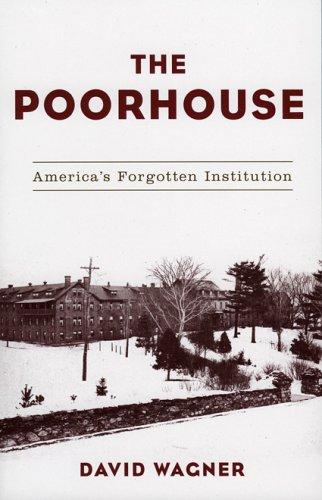Ben Waber reviewed The Poorhouse by David Wagner
A Fascinating, Challenging History
5 stars
Wagner illuminates the history of the poorhouse, a once ubiquitous institution that was abolished post-WW2 and has somewhat been reconstructed, albeit in a different form, in recent decades. Starting with the frankly shocking way the poor were treated prior to poorhouses (poor people were literally auctioned off to the lowest bidder - they were paid by the state to feed and house them in exchange for labor), this book then moves into the complicated organization of the poorhouse - part homeless shelter, often part prison, nearly always involving forced labor, and managed by the state. One can imagine the issues that might arise in these institutions, and Wagner does examine the many abuses and graft that went on behind the scenes, but what struck me was how we arguably haven't improved much, if at all, on the conditions that prevailed in poorhouses over a century ago. With the New England …
Wagner illuminates the history of the poorhouse, a once ubiquitous institution that was abolished post-WW2 and has somewhat been reconstructed, albeit in a different form, in recent decades. Starting with the frankly shocking way the poor were treated prior to poorhouses (poor people were literally auctioned off to the lowest bidder - they were paid by the state to feed and house them in exchange for labor), this book then moves into the complicated organization of the poorhouse - part homeless shelter, often part prison, nearly always involving forced labor, and managed by the state. One can imagine the issues that might arise in these institutions, and Wagner does examine the many abuses and graft that went on behind the scenes, but what struck me was how we arguably haven't improved much, if at all, on the conditions that prevailed in poorhouses over a century ago. With the New England focus here, I was also surprised that many of the community farms and hospitals in the area were originally poorhouses, with the farms used as workplaces for the poor. In many histories of the US, the poorest are invisible. Not here. Highly recommend

